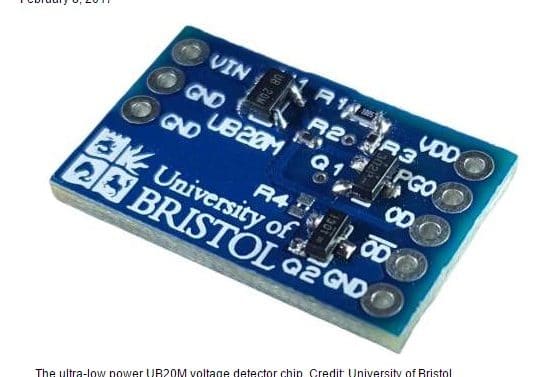
Pioneering chip extends sensors’ battery life (video)
A low-cost chip that enables batteries in sensors to last longer, in some cases by over ten times, has been developed by engineers from the University of Bristol.
Dr Bernard Stark and colleagues in the Bristol Electrical Energy Management Research Group based in the Merchant Venturers School of Engineering, have developed a voltage detector chip that requires only a few trillionths of a watt (picowatts) to activate other circuits. The research group are providing samples of their chip to companies to use, which will enable engineers to design sensors that continuously listen, without using power from a battery or mains.
The result is smaller batteries, or a battery life that is extended, in some cases by years. The voltage detector can also eliminate standby power, for example the team have demonstrated a TV with no continuous draw of power during standby, by using a voltage detector that is powered up at a distance, directly from the infrared signal of a standard TV controller.
The patent pending UB20M voltage detector, or keep-alive device, is a chip that, when combined with a suitable sensor, eliminates standby power by enabling zero-power sensing and listening. It allows circuit designers to develop circuits that perform continuous monitoring without using battery power, and to implement wireless wake-up with zero receiver power. The chip is a sensor-driven circuit that requires no power supply, instead it uses a fraction of the power contained in the output signal of the sensor.
Here is an overview video:
Original article here.

